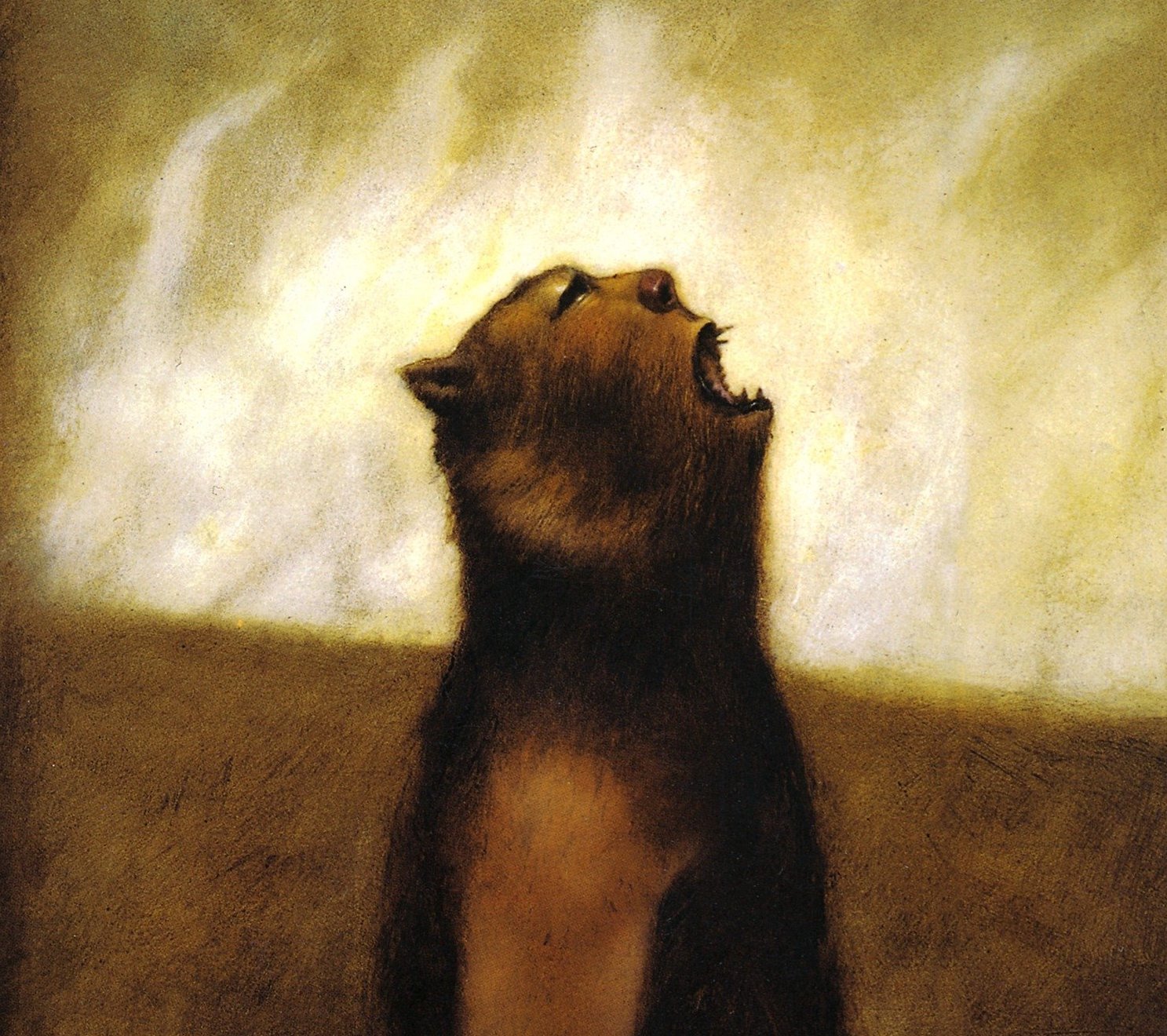Toni Morrison on Beowulf and Grendel: Two Very Different Quest Stories

The evening before last, I got a chance to see, in Greensboro, a lecture by Toni Morrison, Nobel and Pulitzer Prize-winning author of Beloved and Song of Solomon, among other novels. I’d never seen her speak before. She’s a natural storyteller—dramatic, funny, pausing in all the right places. She held the audience in her hands. And the stories she happened to tell were, interestingly enough, quest stories.
She began with a brief introduction—her belief in the importance and power of story. She then proceeded to retell the ancient story of Beowulf—an epic narrative about a monster, Grendel, who ravages a Scandinavian kingdom. She told, first, the original story in which Grendel is depicted as the epitome of pure senseless evil, devouring the citizens of the kingdom for no reason other than because he can. A hero emerges—Beowulf. His quest entails defeating the monster, and he manages, in battle, to cut off Grendel’s arm. But then the story becomes a bit more complicated. Grendel returns home to his mother and she turns out to be a yet fiercer monster–and vengeful. She launches her own attack on the kingdom, slaying large numbers of citizens and placing their bodies in her pouch. (Here Ms. Morrison added one of her nice touches. “How wonderful,” she said, “How perfect that the mother was carrying a pocketbook.”)
Beowulf’s quest continues. He follows the mother to her lair, engages her in battle, and manages to take her sword and, with this sword, defeat her by cutting off her head.
The original Beowulf is a bloody quest story—the hero’s quest ends in violence and conquest.
But then, as a counterpart to Beowulf, Ms. Morrison offered another story–a shift in point of view—a different kind of quest story. Drawing from John Gardner’s novel, Grendel, she offered a retelling of the story from the monster’s point of view. There’s not enough time or space here to do Gardner’s novel justice—and I haven’t yet read it!–but her comments about Grendel are at the heart of what I took away from Ms. Morrison’s lecture.
In the retelling of the story, Grendel has an inner life. He is no longer a beast, Morrison told us. And, unlike the original story, he is capable of some degree of transformation. This transformation occurs, at least in part, via a character in the novel, Shaper, who is a poet. And, she suggested, it is through language—the comprehension and use of language (rather than his former bestial sounds)—that Grendel is transformed.
This second story offers what Arthur Frank might call a post-modern quest—a quest that has to do with inner transformation rather than with conquering.
Ms. Morrison suggested two things near the end of her talk that separate humans from other creatures—that separate us, she said, from, for instance, asparagus. First, love—namely the ability to care for creatures that are not our own and from which we may not receive any immediate or apparent benefit. And, second, language. Ms. Morrison proposes that language is capable of transformation. As I understand her, she is proposing that language is capable of transforming evil. Of transforming individuals. Of transforming kingdoms. Of transforming countries. Of shifting stories from violent ones to stories in which something new happens. And she said this the other evening with such a confident and august presence—it was inspiring—-
______________________________________
See also:
The picture is from the cover of John Gardner’s book
